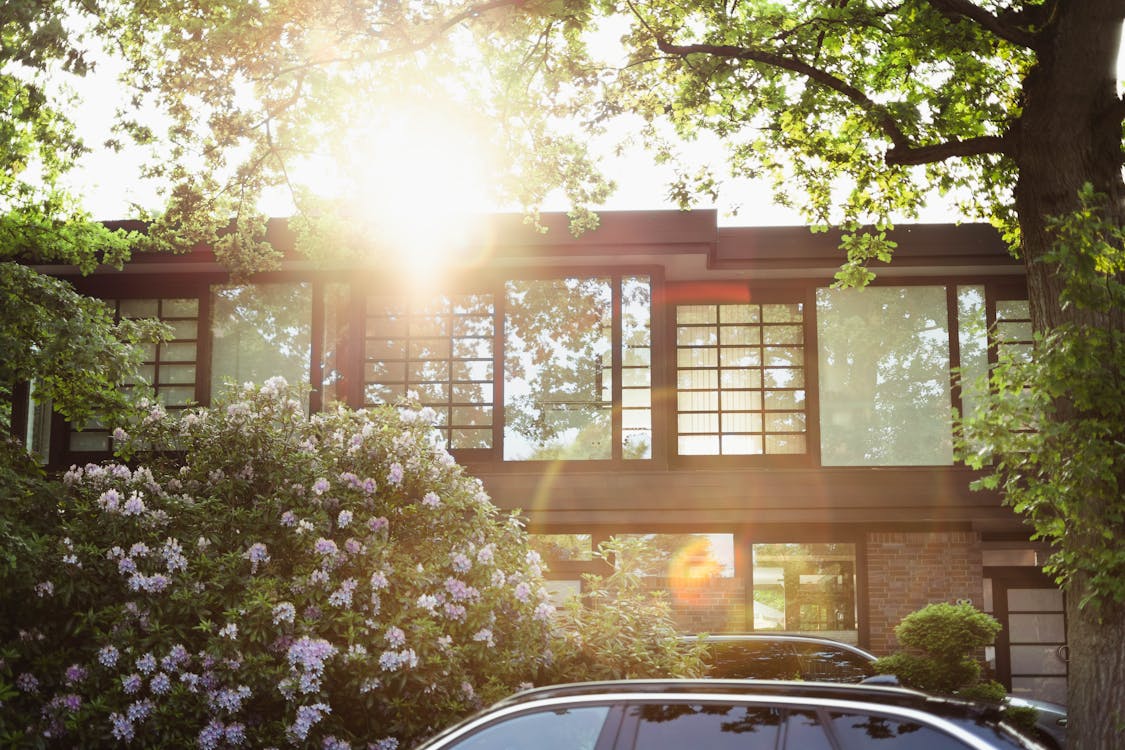In a world where consumption and excess seem to be the norm, a quiet but powerful movement is gaining momentum – the tiny house movement, accompanied by minimalist living. These diminutive dwellings offer an alternative to the sprawling homes that have become synonymous with the modern American dream. With their efficient use of space and minimalist design, tiny houses have captured the imagination of those seeking a simpler, more sustainable lifestyle. However, as this movement grows, it’s important to consider the insurance implications of living in a tiny house.
The Allure of Tiny Living
The tiny house movement isn’t just about downsizing; it’s about reevaluating our relationship with material possessions and embracing a simpler, more intentional way of living. Tiny houses typically measure between 100 and 400 square feet, a far cry from the average American home’s 2,500 square feet.
One of the primary attractions of tiny living is the financial freedom it offers. Traditional homes come with hefty mortgages and utility bills, while tiny houses provide an opportunity to reduce these expenses drastically. With a significantly smaller footprint, tiny house owners often find themselves freed from the burdens of excessive debt and can redirect their resources toward experiences and passions that truly matter.
Furthermore, the environmental benefits of tiny houses cannot be overstated. These miniature homes require fewer resources to build and maintain, contributing to a reduction in overall energy consumption and waste production. Additionally, the small footprint of tiny houses encourages residents to adopt more sustainable practices and live in harmony with nature.

The Insurance Conundrum
While minimalist living presents an appealing vision of a simpler life, it also raises important questions about insurance coverage. Usual homeowners insurance policies are designed for larger, permanent structures and may not adequately address the unique risks associated with tiny houses. This has prompted a need for specialized insurance options tailored to the tiny house lifestyle.
The insurance challenges for tiny house owners arise from the unconventional nature of their dwellings. Tiny houses often fall into a gray area – they’re not quite the same as mobile homes or recreational vehicles, and they’re not exactly traditional houses either. As a result, finding appropriate coverage can be a complex process.
Navigating Tiny House Insurance
For those who have taken the plunge into tiny living, it’s crucial to understand the insurance implications and seek out coverage that aligns with their lifestyle. Here are some key points to consider:

Type of Tiny House: There are different types of tiny houses, including stationary tiny houses on a foundation and those on wheels. Insurance options may vary based on the type of tiny house you own. Stationary tiny houses might be eligible for traditional homeowners insurance, while those on wheels could require a policy similar to RV insurance.
Coverage Options: When it comes to insuring a tiny house, the level of coverage needed depends on how you use your tiny home. If it’s a primary residence, you’ll likely need more comprehensive coverage than if you use it as a vacation home or a secondary dwelling.
Customization and Value: Tiny houses are often customized to meet the specific needs and preferences of their owners. When seeking insurance, make sure the policy accounts for any modifications or upgrades that contribute to the value of your tiny house.
Location Matters: The location of your tiny house plays a role in determining insurance rates and coverage. Factors like weather patterns, local regulations, and proximity to emergency services can impact your insurance needs.
Liability Coverage: In addition to property coverage, liability coverage is a critical consideration. Accidents can happen regardless of a dwelling’s size, so having liability protection is important to safeguard your financial well-being.
Specialized Insurers: As the tiny house movement gains traction, specialized insurance providers are emerging to cater to the unique needs of tiny house owners. These insurers understand the intricacies of tiny living and can offer more tailored coverage options.

Embracing a Secure Tiny House Lifestyle
Tiny house enthusiasts have shown incredible ingenuity in designing their homes and embracing a pared-down lifestyle. As the demand for tiny house coverage grows, the insurance industry is beginning to adapt to these unique requirements.
If you want home insurance for your residence in Indian Orchard, get in touch with the insurance providers at Western Mass Auto Insurance today. They provide home insurance, office insurance, and local car insurance too!
About the Author
Louis Stevens is a real estate agent who finds the perfect homes for his clients in Indian Orchard. He lives with his wife and their daughter in a cozy farmhouse.

